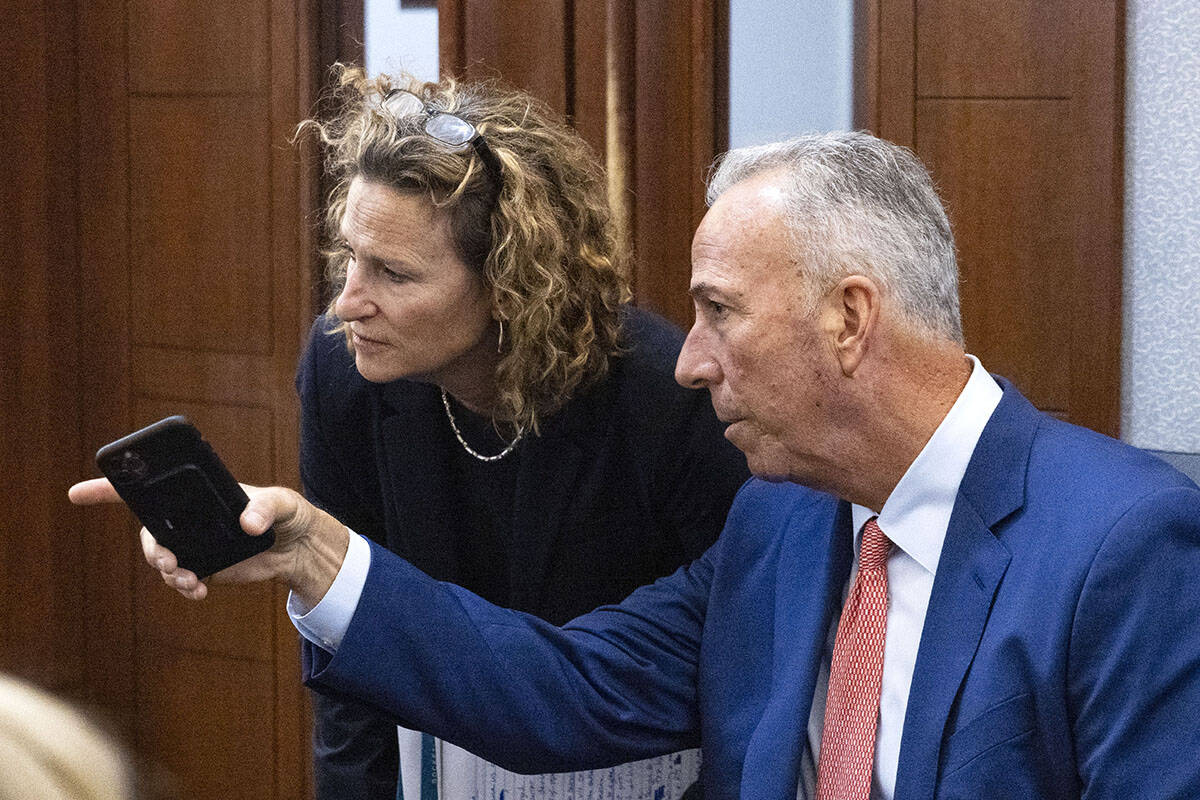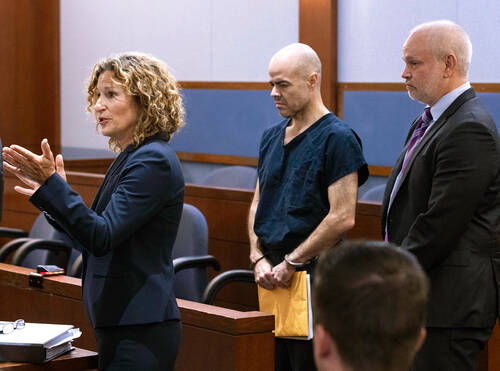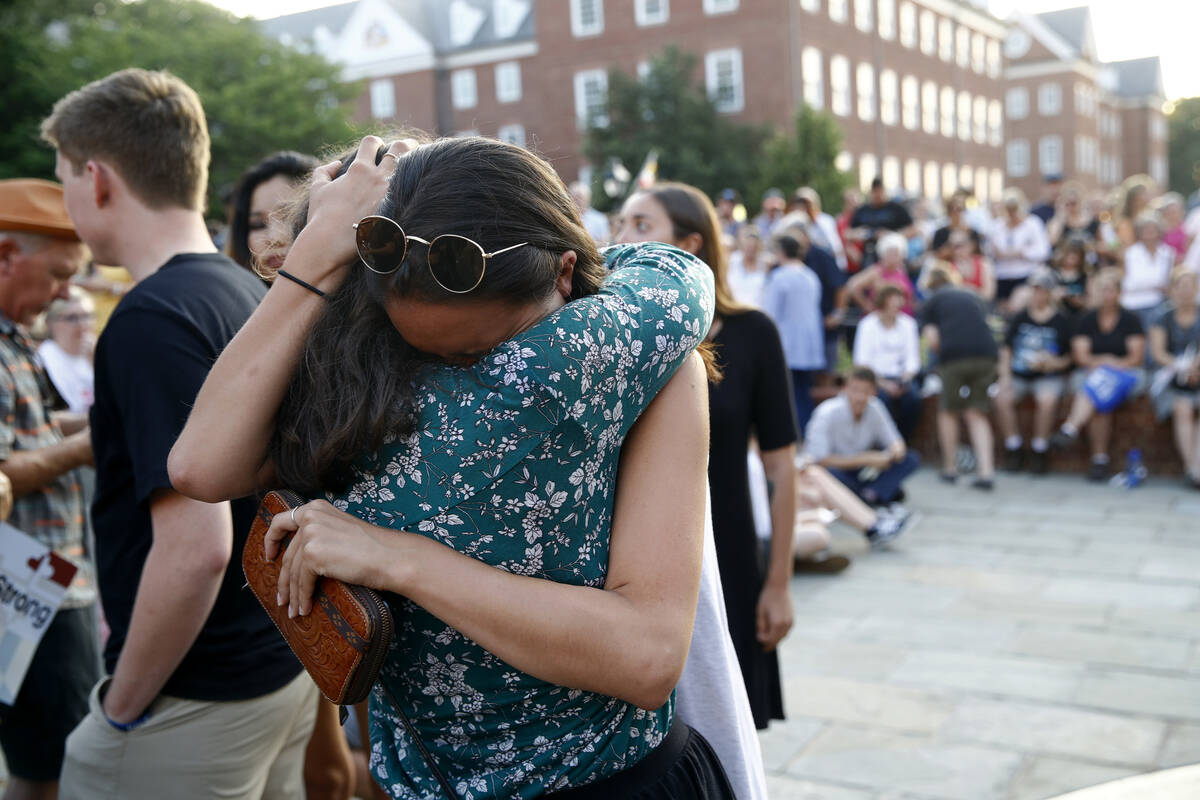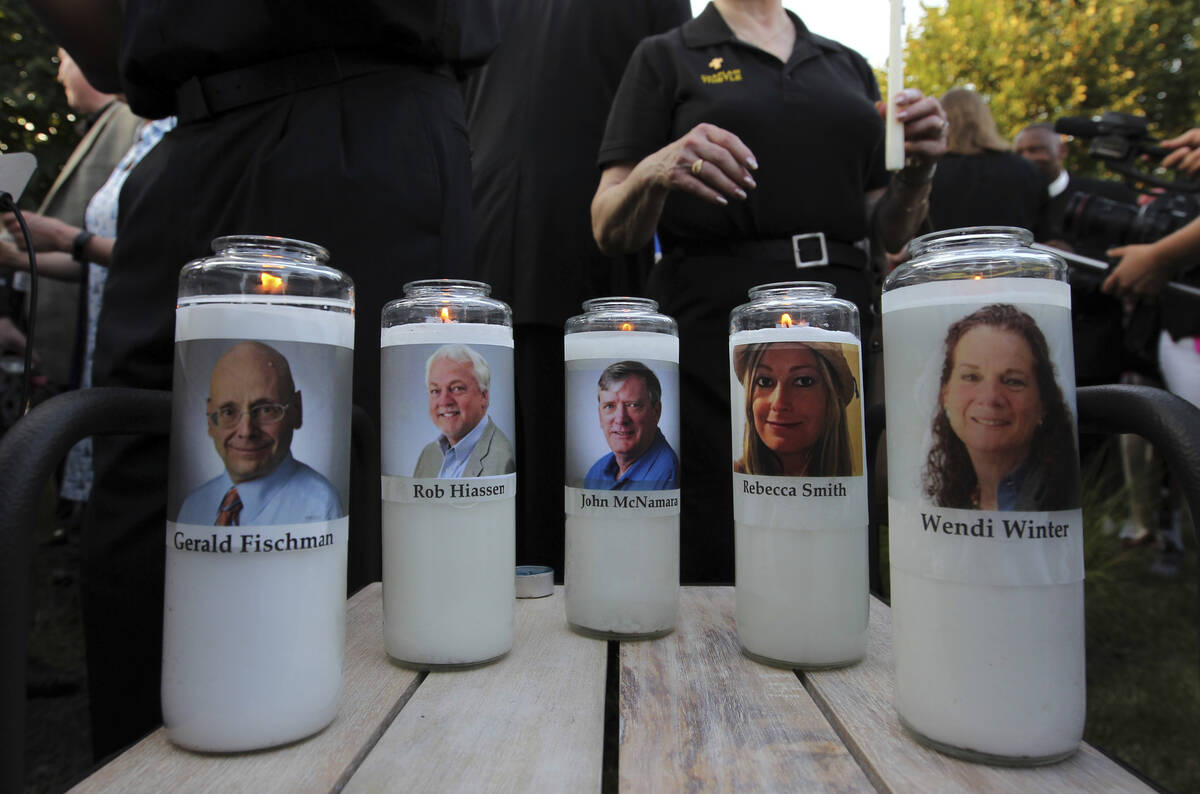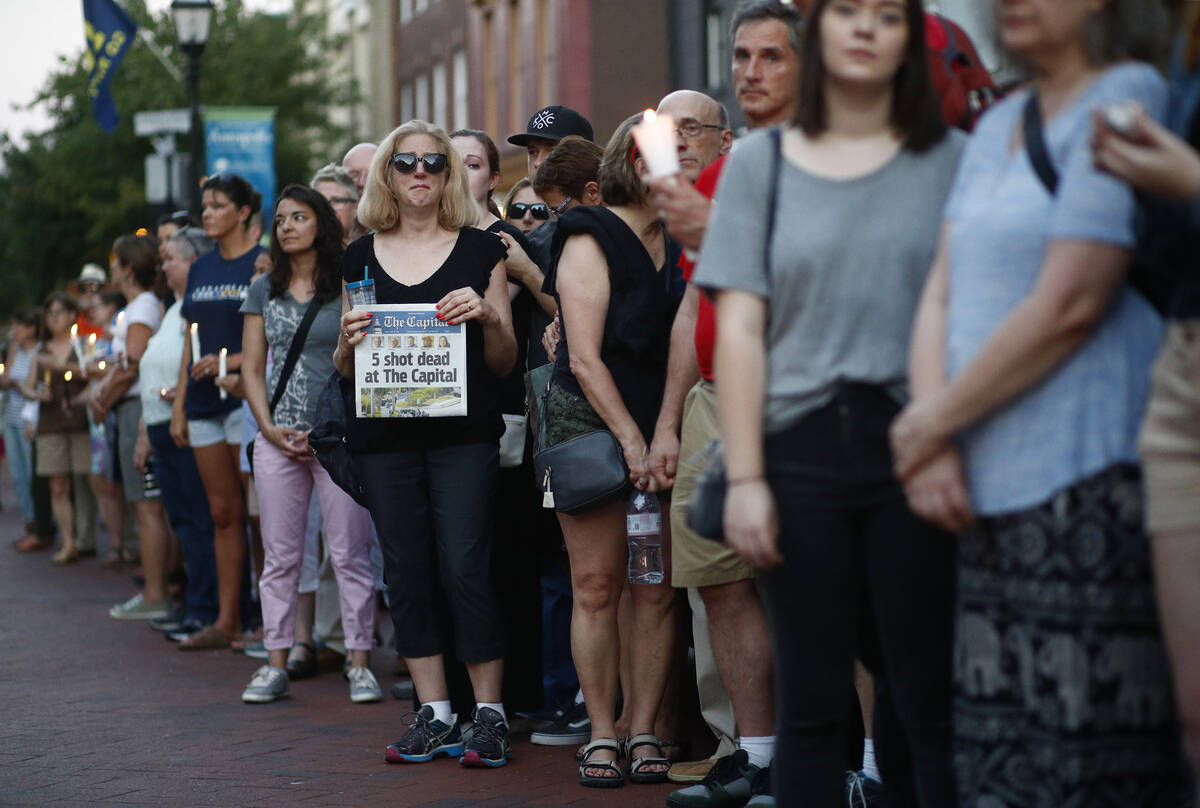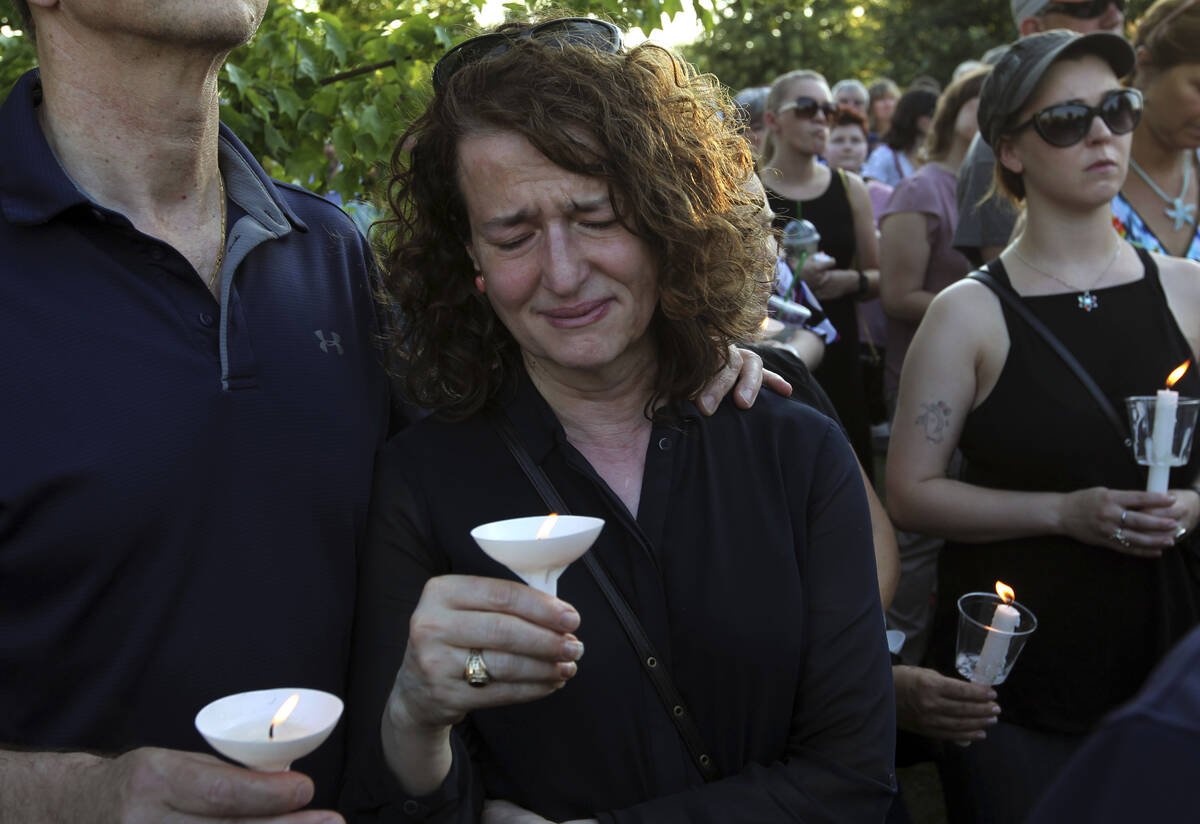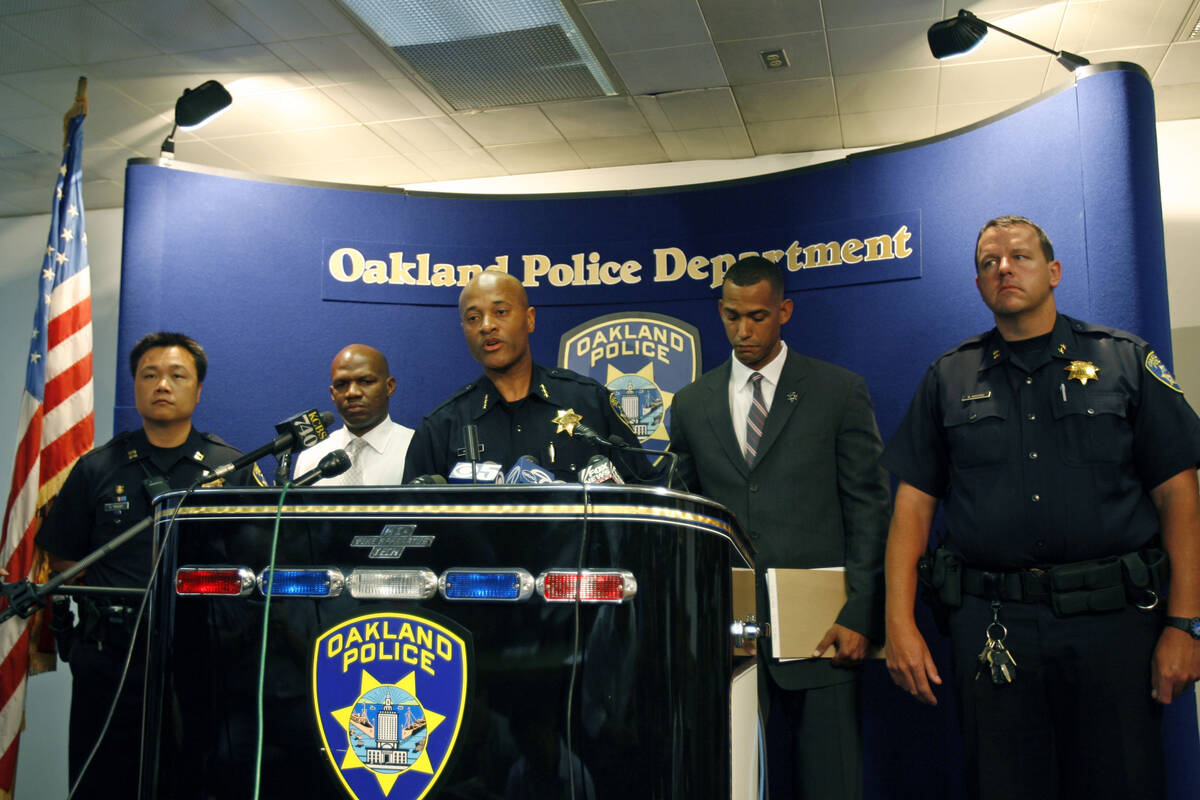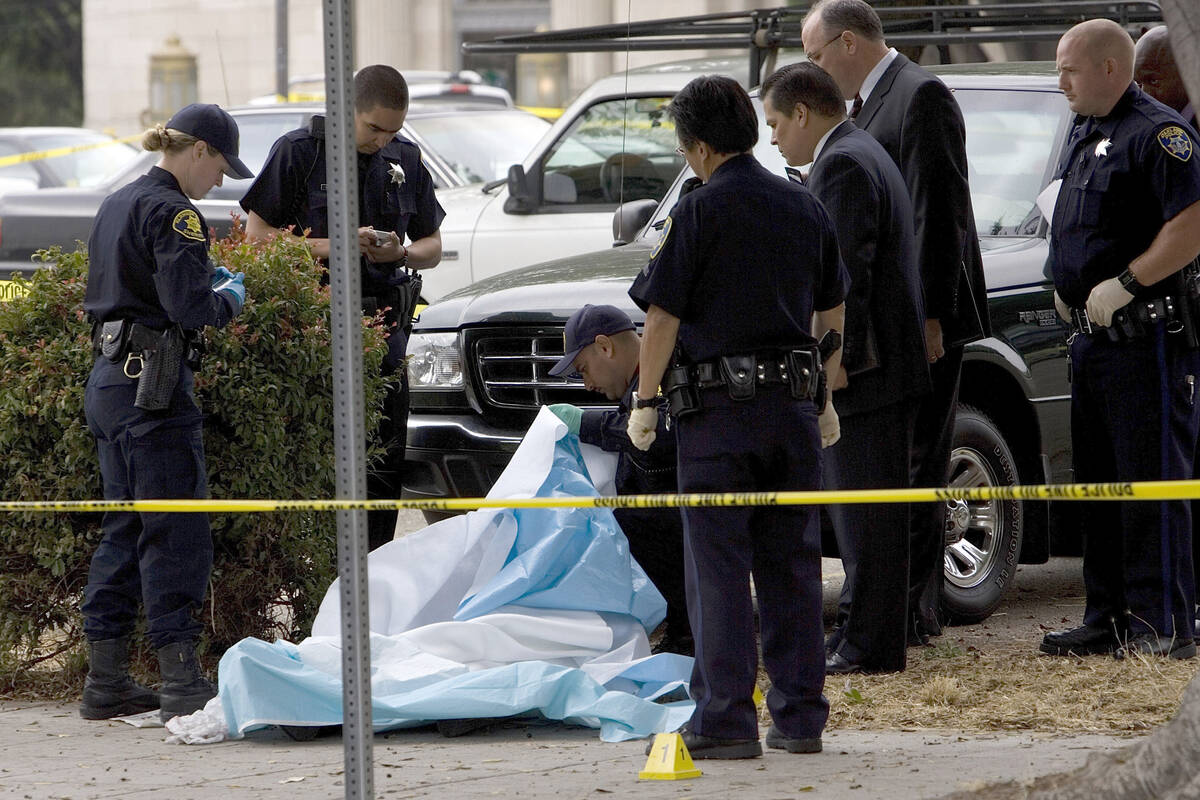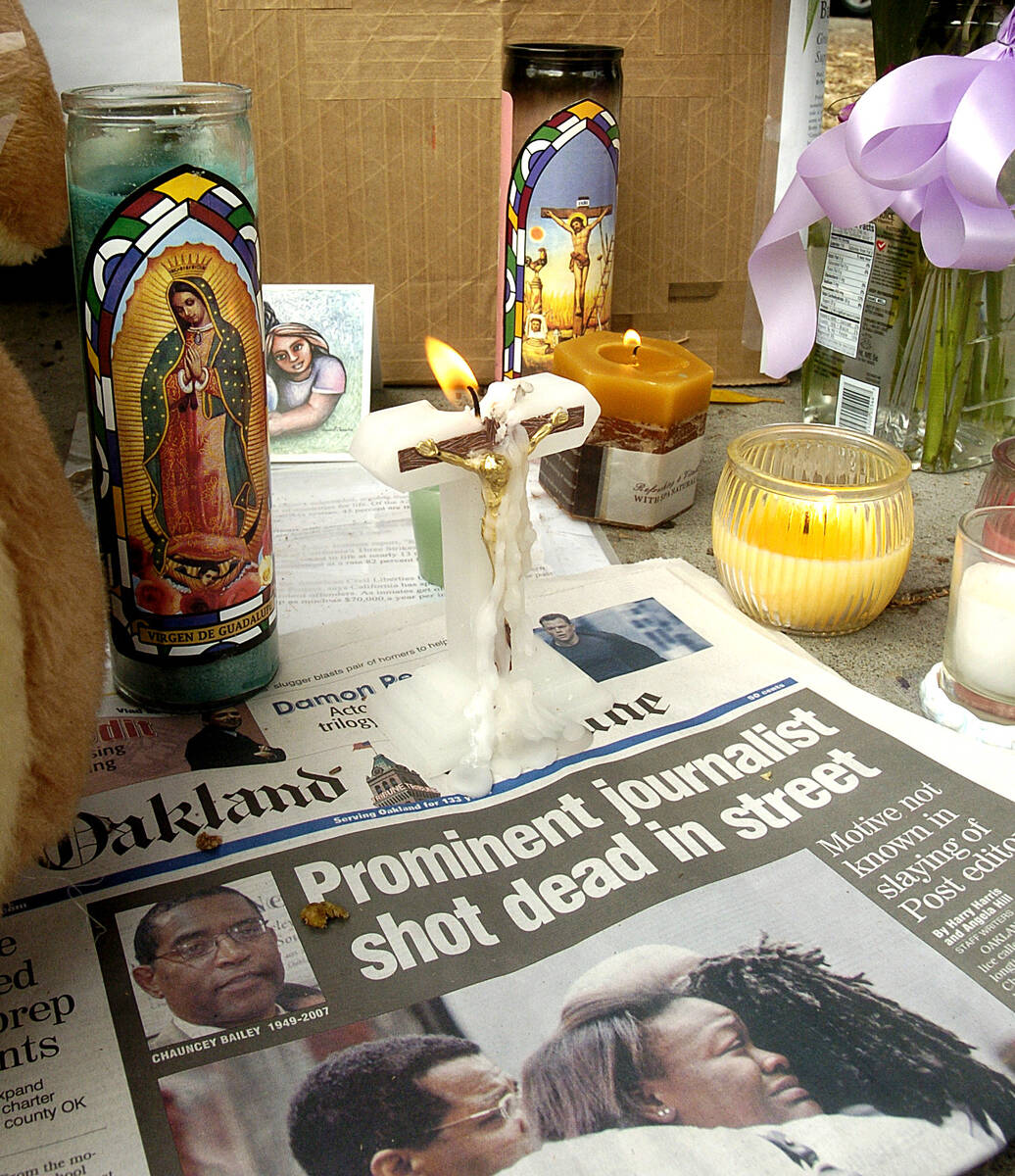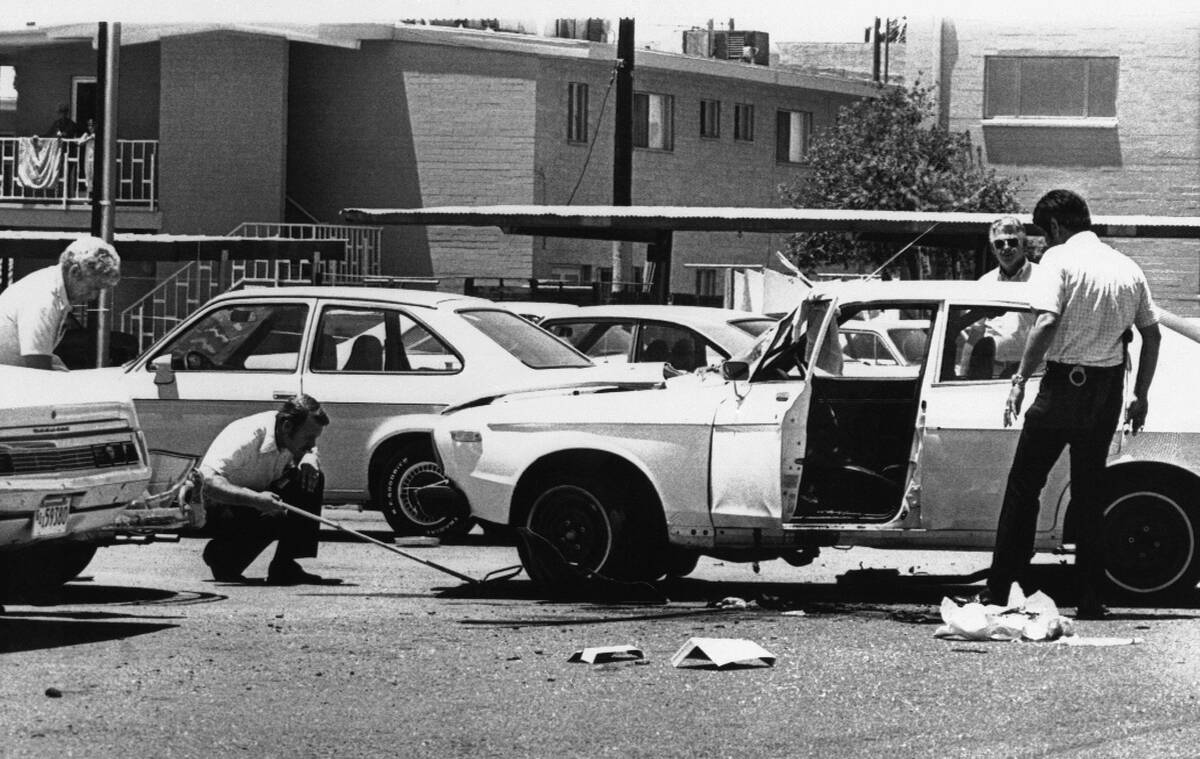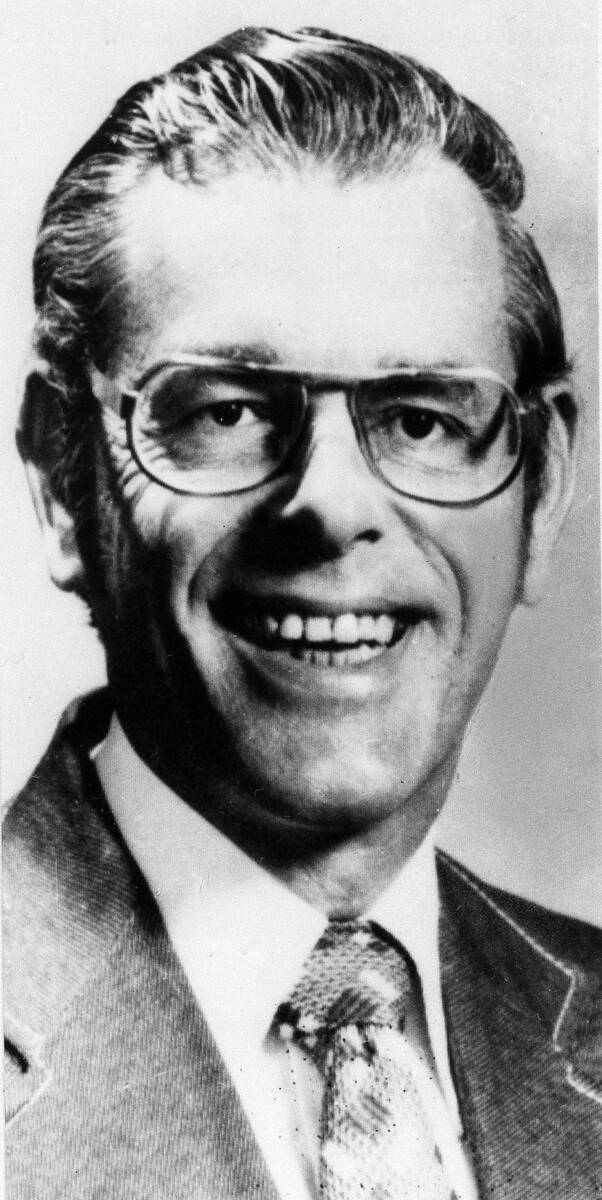Murder of Jeff German brings historic challenge to reporter shield laws
More than 40 years ago, Jeff German put Nevada’s shield law to the test.
The young investigative reporter was summoned to a Las Vegas courtroom, where a mafia attorney demanded he divulge his sources.
German refused.
Now, his recent slaying has prompted a historic challenge to that same law — and the Las Vegas Review-Journal says the protection of his sources is once again on the line.
German, 69, was found stabbed to death outside his home on Sept. 3. Former Clark County Public Administrator Robert Telles, whose workplace conduct was scrutinized in four of German’s stories this year, is accused of killing him.
The longtime Las Vegas journalist had been working from home at the time of his death. Authorities seized German’s electronic devices, and now prosecutors and the public defender’s office want to search them.
Experts believe German’s case is the first where U.S. law enforcement has sought access to a murdered reporter’s sensitive work in progress.
The Review-Journal is fighting to prevent that in court, arguing the police seizure violated both state and federal laws that protect journalists.
The stakes are high: The search could expose German’s confidential sources, potentially employees of the same agencies conducting the search. Confidential sources in the public administrator’s office are also at risk and said they fear being identified could make them a target of Telles if he is released on bail or acquitted.
But attorneys for the Metropolitan Police Department assert the constitutional rights of German’s accused killer “take precedence over any reporter’s rights,” according to court records.
The case’s outcome has the potential to set a dangerous legal precedent and could erode potential sources’ trust in journalism nationwide, experts contend.
“It’s not just about Jeff’s death. It’s not just about Jeff’s notes. It’s about the larger question of ensuring fair, free, honest reporting and protecting democracy,” said Mi-Ai Parrish, who teaches media ethics and enterprise at the Walter Cronkite School of Journalism and Mass Communication at Arizona State University. Parrish is also a former publisher for three news organizations.
The Reporters Committee for Freedom of the Press and at least 48 other media organizations have asked to file a friend-of-the-court brief in support of the Review-Journal’s efforts.
A Clark County district judge on Wednesday issued a temporary restraining order delaying the search of German’s devices. A hearing is set for next week.
The newspaper earlier this week pointed out that these materials are confidential by law, but has been willing to compromise and allow a third party, or special master, to help review German’s devices and only pass on necessary information to the parties.
Experts call it a potential solution. But if a compromise isn’t reached, drawn-out appeals could delay the criminal trial.
Telles’ attorneys did not respond to requests for comment Friday. When reached by phone, District Attorney Steve Wolfson said prosecutors would address the matter in the courtroom.
Metro wrote in a statement that German is the victim of a crime, not just a reporter.
“No one is more concerned about the victim’s rights than his family, the District Attorney, and the LVMPD,” a department spokesperson wrote. “Everything we are doing is designed to provide justice for the victim’s family.”
But Review-Journal Executive Editor Glenn Cook said the murder of German was an attack on journalism itself.
“Now Jeff’s slaying has led to another direct attack on journalism, one that threatens press rights and privileges across the country,” Cook said. “It would be the height of injustice if Jeff’s murder somehow compromised the identities of his confidential sources.”
Nevada’s shield law
Only about a quarter of states with shield laws have no exceptions to the protections, said Anthony Fargo, director of Indiana University’s Center for International Media Law and Policy Studies.
Nevada is one of them.
Some experts say that makes it a clear-cut decision to bar police from searching German’s devices, but laws protecting journalists have been disputed in Nevada before.
In 2000, the state Supreme Court noted that parties might argue there could be an exception to the shield law, but the court did not rule on the issue.
The justices decided that a Review-Journal reporter could not be forced to testify about his reporting in a lawsuit without determining whether certain situations may call for it, such as when a defendant’s constitutional rights are in question.
The Review-Journal, along with the Associated Press, was also locked in a legal fight for autopsy reports after the Oct. 1, 2017, mass shooting on the Strip.
A court order released the public records. Then a different judge ordered the news outlets to destroy one of the reports, siding with the privacy concerns of a killed police officer’s widow.
The Nevada Supreme Court soon overturned the attempt to claw back the document, arguing that it violated the First Amendment.
Cases in other states also run parallel to the battle over German’s devices.
Like German, freelance journalist Bryan Carmody kept his reporting materials at his home. They were seized by San Francisco police in 2019 as part of an investigation into a leaked police report about the death of the city’s public defender.
The warrants were later nullified and deemed illegal under California’s shield law, but not before police learned the names of two officers Carmody had communicated with.
Carmody filed a claim against the city and officials agreed in March 2020 to pay him a $369,000 settlement.
U.S. history of killed journalists
Telles is the first U.S. elected official in at least three decades accused of killing a journalist over media coverage.
In that same time period, 13 journalists have been killed for their work here, according to data tracked by the Committee to Protect Journalists.
That includes the five Maryland journalists shot and killed in their newsroom in 2018 by a gunman angered over the newspaper’s coverage of his guilty plea in a previous harassment case.
German’s murder is a rare occurrence in the United States but comes at a time when animosity against reporters has ratcheted up.
“It’s mind-boggling to me that we’re at this point in America,” Parrish said. “Without a free press, there is truly no free country.”
There’s no evidence that authorities attempted to seize Arizona Republic investigative reporter Don Bolles’ work after he was killed pursuing a story in 1976, according to news reports and media law experts. Bolles died 11 days after a bomb exploded under his car. Dozens of reporters would later comb through his notes and files as part of the Arizona Project to finish Bolles’ investigation into organized crime and corruption.
In 2007, Oakland Post editor Chauncey Bailey was gunned down on his morning walk to work over a story he was writing about a bakery’s financial problems. Three people were eventually convicted of the crime.
Police seized Bailey’s laptop from the murder scene, but never accessed it, according to Thomas Peele, an investigative reporter who worked for the Bay Area News Group when he and others started the Chauncey Bailey Project to finish his work.
Law enforcement returned the device to Bailey’s family, who gave them to Peele. He still has the hard drive to this day. The shell of the laptop was later displayed at the Newseum in Washington, D.C., which closed in 2019.
Peele said investigators never subpoenaed Bailey’s unpublished story about the bakery, even though the newspaper had retained a copy. It was also not shown to jurors.
“The police in Oakland looked at it as being a street crime and a black-on-black thing,” Peele said, “and didn’t give it the same aggressive treatment that a murder over someone’s First Amendment rights should have had.”
After the newsroom massacre at the Capital Gazette in Annapolis, then-editor Rick Hutzell and other managers decided they would fight any attempt to seize work product.
That never happened, Hutzell said. The newspaper did turn over the security footage of the shooting to prosecutors.
But the situation was also different in other ways: The reporter whose work had inflamed the killer was no longer employed by the paper, and the stories had been written seven years earlier.
“The only thing that’s even remotely similar here is just that the prosecutor asked us not to report on it, which we rejected,” Hutzell said.
Special master
Despite the argument that searching German’s devices is vital to Telles’ right to a fair trial, media experts say that’s not an excuse to peruse all of his communications.
“It feels like an eternal witch hunt for law enforcement, rather than a good-hearted attempt for a thorough investigation into the alleged killer’s motivations,” said Katherine Jacobsen of the Committee to Protect Journalists, a nonprofit organization that promotes press freedom worldwide.
Joseph Russomanno, a mass communication law professor at Arizona State, said the violent nature of the case demands German’s sources be protected.
For some, it could jeopardize their safety or careers.
“There’s a potential domino effect that could ripple through the whole database that might be discovered,” he said.
Las Vegas criminal defense attorney Todd Leventhal said the Review-Journal’s suggestion of resolving this with a neutral third party is comparable to cases he has tried in federal court.
In those cases, a special master from out of state reviewed the discovery independently to protect confidential informants.
Leventhal said it could provide a common ground for both parties in this case.
“Telles does have a right to delve into alternate defense theories,” he said. “But on the other hand, those people have a right to confidentiality, which is what they assumed when they were speaking to Jeff.”
Contact Briana Erickson at berickson@reviewjournal.com or 702-387-5244. Follow @ByBrianaE on Twitter. Staff writer Katelyn Newberg contributed to this report.



